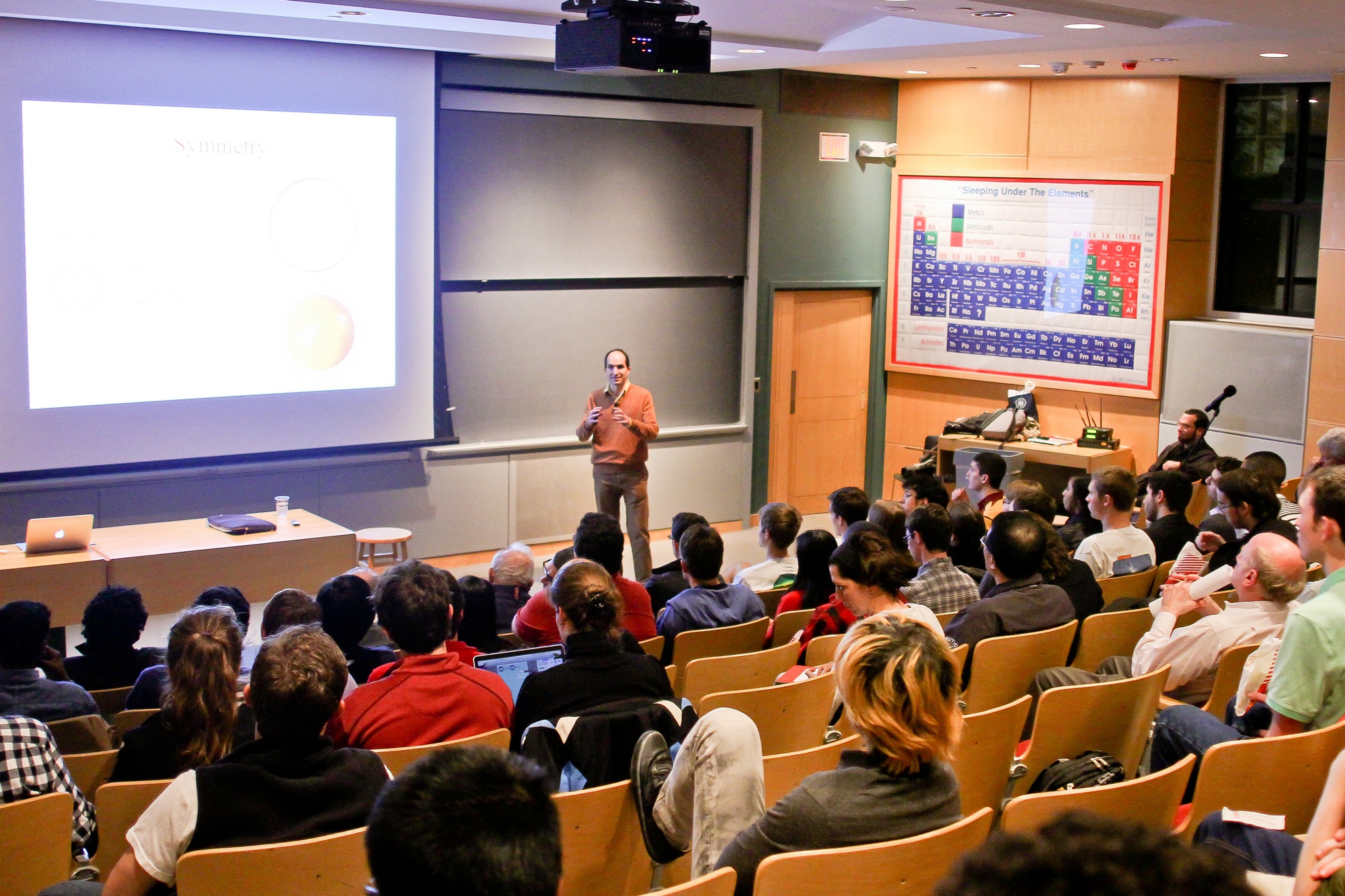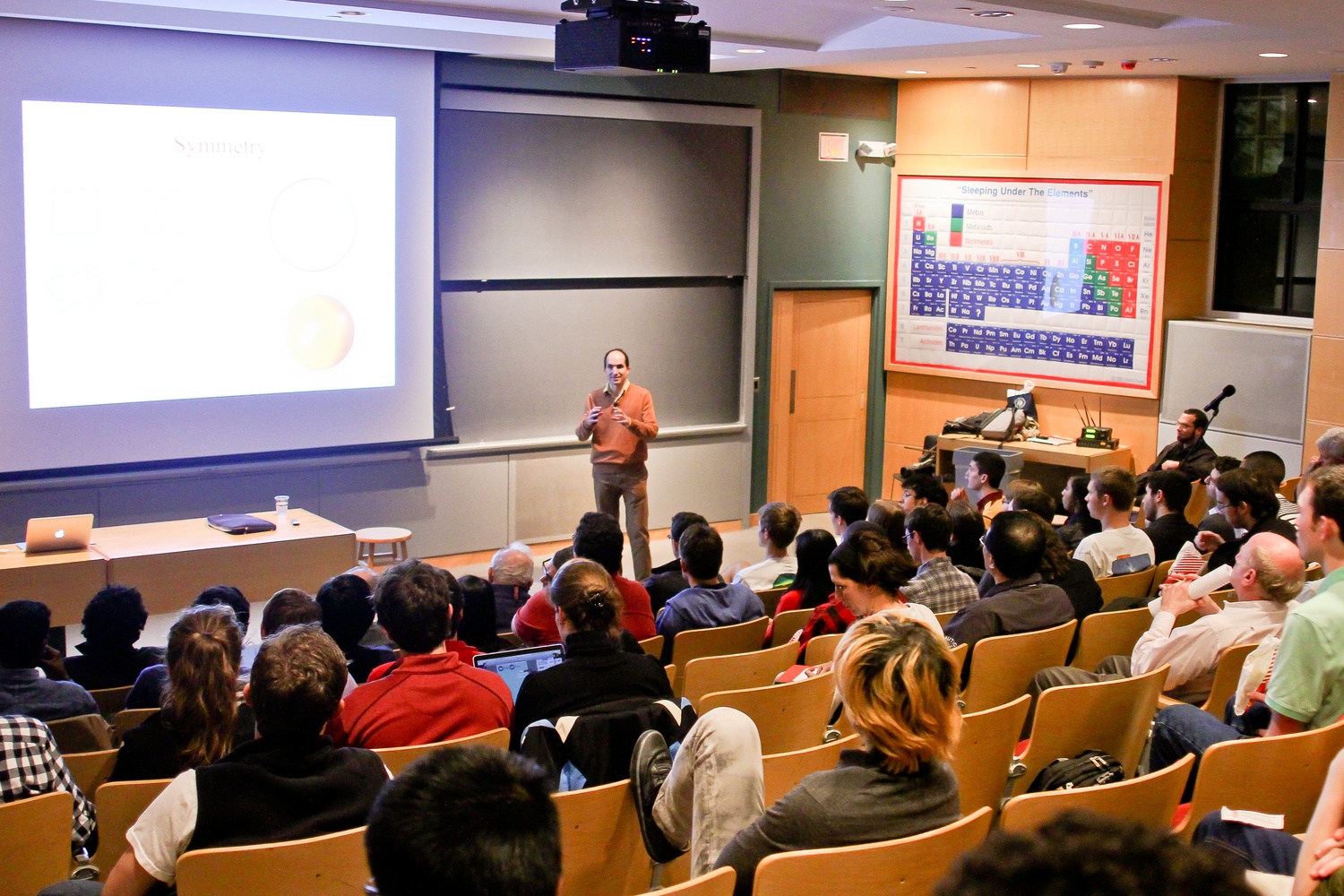
News
When Professors Speak Out, Some Students Stay Quiet. Can Harvard Keep Everyone Talking?

News
Allston Residents, Elected Officials Ask for More Benefits from Harvard’s 10-Year Plan

News
Nobel Laureate Claudia Goldin Warns of Federal Data Misuse at IOP Forum

News
Woman Rescued from Freezing Charles River, Transported to Hospital with Serious Injuries

News
Harvard Researchers Develop New Technology to Map Neural Connections
Guest Lecturer Highlights 'Beauty' in the Higgs Boson

Physics phenomena are simpler and more elegant than people think, Juan M. Maldacena, professor of theoretical astrophysics at the Institute for Advanced Study, told a packed Pfizer Lecture Hall Tuesday night.

“Today, I’m going to tell you the story of ‘Beauty and The Beast,'” the former Harvard professor said, likening the elegant “Beauty” to the forces of nature and the mysterious “Beast” to the Higgs Boson particle.
In his talk, entitled “The Symmetry and Simplicity of the Laws of Physics and the Higgs Boson,” Maldacena touched upon the interactions between different forces—electromagnetic, weak, strong, and gravitational—and subatomic particles.
“At each point in space, the electric field pushes a charged particle,” he said. “Magnetic fields act on only moving charges. Now, that’s probably what you heard in high school.”
To explain the interaction of the Higgs Boson with these forces, Maldacena likened the movement of particles in force fields to the flow of currency, used to purchase different goods in different countries.
In addition to discussing the particle itself, Maldacena gave an overview of the Large Hadron Collider, the accelerator used to isolate subatomic particles. “It’s very tricky to do this experiment, and sometimes I’m asked, ‘What is this useful for?’” he said. “It helps us understand how the world behaves at short distances.”
Cumrun Vafa, a Physics professor specializing in string theory, said that the lecture allowed students who are not physics concentrators to gain exposure to different subjects.
“[Students] should not feel alienated in terms of this abstraction,” Vafa said. “These subjects are not too far from our conception.”
Jarrod R. Wetzel-Brown ’17 also said that he appreciated the lecture’s accessibility.
“As a person who has never been acclimated to string theory or anything like that, it was wonderful to hear about the Large Hadron Collider and the other topics,” he said.
Want to keep up with breaking news? Subscribe to our email newsletter.
